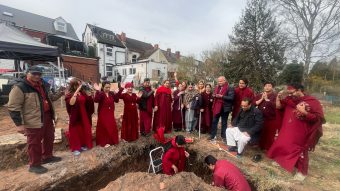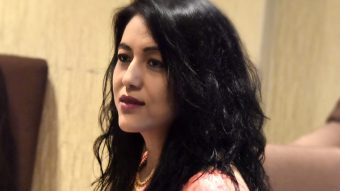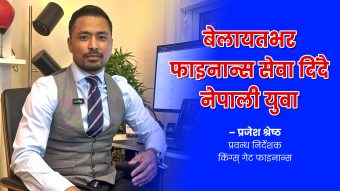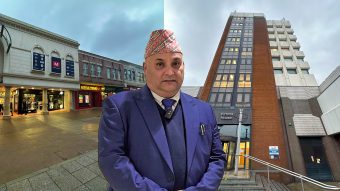Challenges to Loss and Damage Fund discussed at COP29


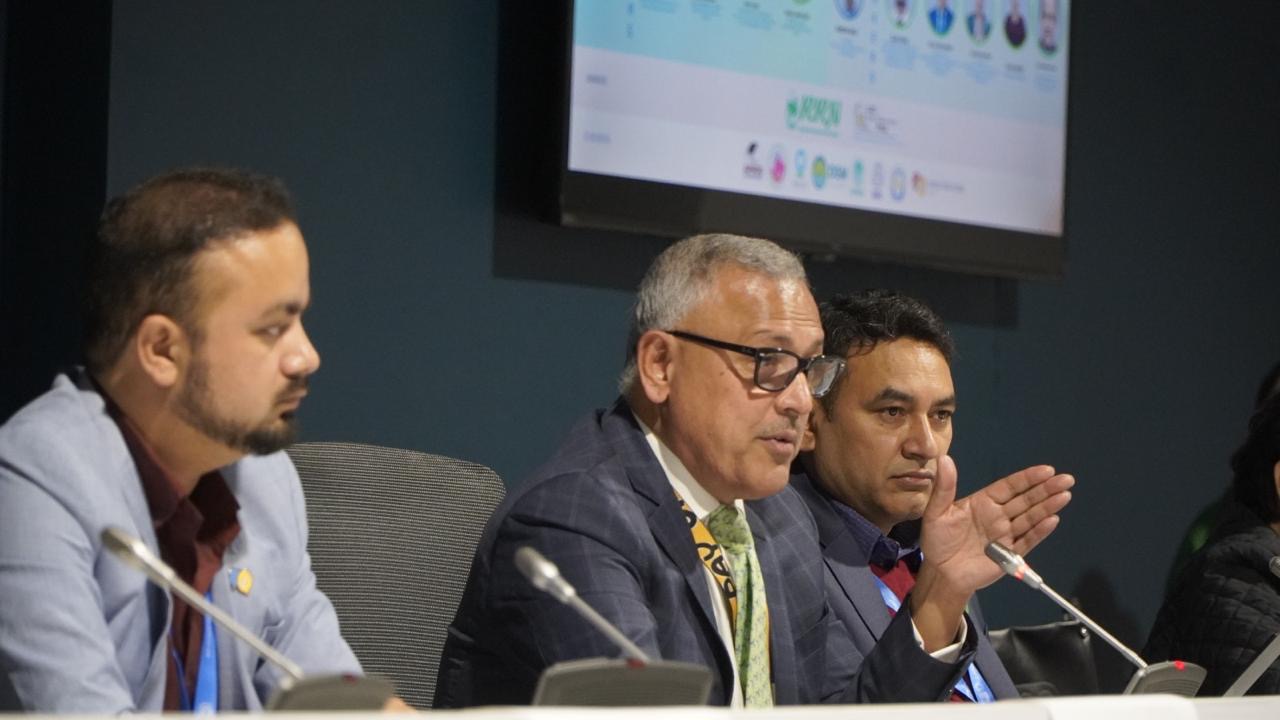
Kathmandu – To understand the potential and challenges of the newly established Fund for Responding to Loss and Damage (FRLD), Rural Reconstruction Nepal (RRN) and its partners held a side event titled “Fund for Responding to Loss and Damage (FRLD): Opportunities and Challenges for Indigenous Peoples and Local Communities in the Global South” at COP29 in Baku, Azerbaijan.
The event focused on the FRLD, a milestone in climate finance designed to support vulnerable developing countries in addressing both economic and non-economic loss and damage caused by climate change, including extreme weather events and slow-onset impacts. It included two sessions that brought together diverse perspectives from stakeholders across the Global South.
Moderating the first session, titled “Opportunities and Challenges for the Global South” Dr. Arjun Karki, Executive President of RRN, hailed the establishment of the FRLD as a significant milestone in advancing climate justice. He underscored that much work remains, emphasizing that for countries like Nepal and others in the Global South, the impacts and risks of climate change are becoming increasingly complex and difficult to manage.
He highlighted that loss and damage is already a stark reality for many in the region and called for the Global North to meet the financial needs of the Global South, which amounts to trillions of dollars annually.
Referencing the recent disasters in Nepal – the Thame glacial lake outburst flood (GLOF) in August and the unprecedented September floods, Dr. Karki stressed on the need for continued advocacy to ensure the FRLD is not merely symbolic but adequately resourced and effective in addressing the scale of the climate crisis.
Building on the call for continued advocacy, Lidy Nacpil, Coordinator of the Asian People’s Movement on Debt and Development (APMDD), framed the FRLD a testament to the relentless efforts of civil society organizations (CSOs) and underscored the importance of such sustained efforts to ensure its success.
She urged governments of the Global North to take responsibility for delivering adequate climate finance to address mitigation, adaptation, just transition, and loss and damage. Highlighting a critical concern, she stressed that such financing should be provided as grants, not loans, to avoid further exacerbating the debt burdens of already vulnerable nations and the need to make the fund easily accessible to those most affected by the climate crisis.
Nabaraj Pudasaini, Joint Secretary of the REDD Implementation Center, highlighted the potential of innovative financing mechanisms, such as green and blue bonds and engagement of the private sectors to significantly enhance climate financing efforts. He emphasized the importance of adopting a rights-based approach, advocating for the empowerment of Indigenous Peoples and Local Communities (IPLCs) to ensure they can access and utilize funds effectively.
Representing the youth on the panel, Sabin Lamichhane, National Youth Engagement Specialist at FAO, highlighted how the climate crisis disproportionately impacts young people, yet their representation in decision-making processes remains alarmingly low. He called for the creation of youth-centric platforms that ensure meaningful participation in both pre-COP and post-COP processes. Additionally, he emphasized the importance of youth empowerment through education, capacity building, and entrepreneurship, and how these initiatives could play a crucial role in producing innovative and impactful solutions to local climate challenges.
Ms. Ruby Karki, Founding Member of the Coalition for Gender Responsive Climate Policy (CGRCP), emphasized the critical role of partnerships in understanding and addressing local challenges caused by climate change. She highlighted the importance of prioritizing the vulnerabilities and needs of rural and grassroots communities in fund allocation and operationalization, advocating for approachable processes and direct access to financing as key mechanisms to empower vulnerable communities to consistently and sustainably respond effectively to climate challenges. This included a frank assessment of how access mechanisms are not designed to be accessible to organizations and institutions in the global south across private sectors and CSOs.
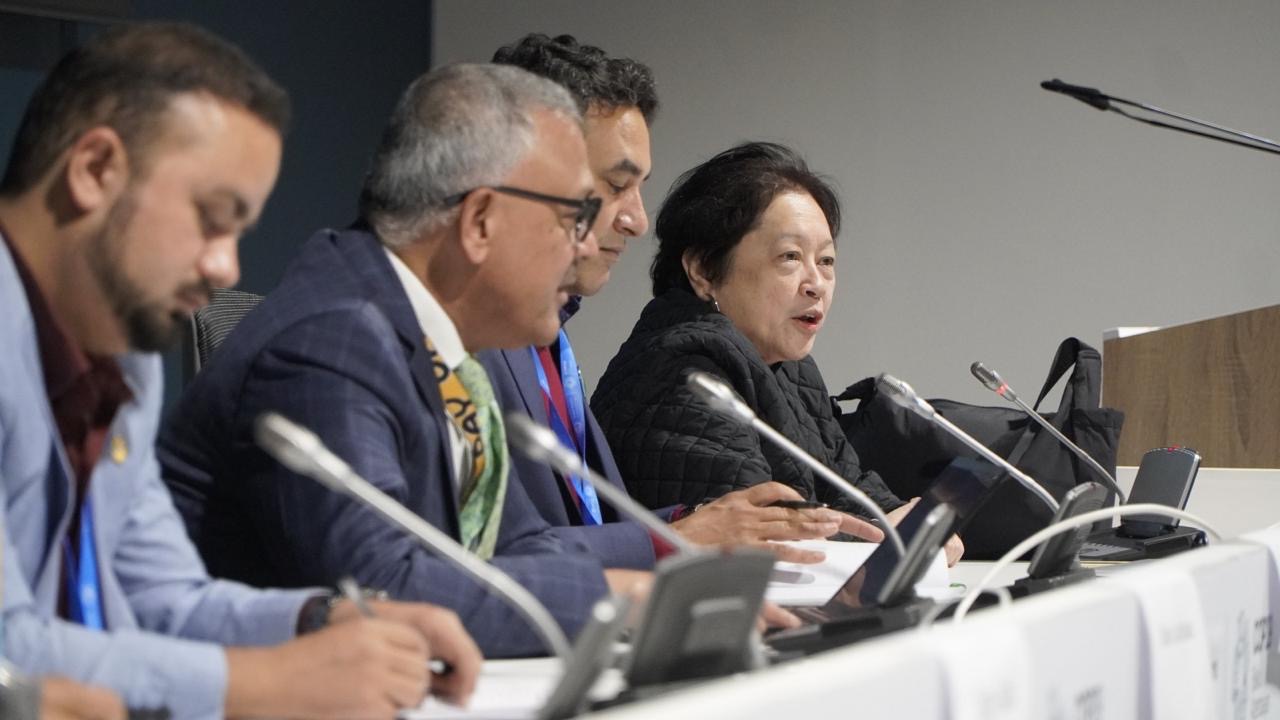
Leadership in Climate Actions in the Global South
The second session, “Leadership in Climate Actions in the Global South,” moderated by Johnson Cerda, Director of Conservation International and DGM Global, delved into the pivotal role of Indigenous Peoples and Local Communities (IPLCs) in climate leadership. The discussion emphasized empowering IPLCs as frontline defenders of natural ecosystems, particularly in the Global South, where climate impacts are most acutely felt. Speakers from the Global South countries including Guatemala, Ecuador, Kenya, and Nepal shared insights on their advocacy efforts for IPLC rights, underscoring the urgent need for inclusive policies and actions that elevate IPLC leadership in global climate solutions.
Elijah Toirai, Senior Director of IPLC Regional Engagement and NCS Partnerships for Africa at Conservation International, stressed the importance of transitioning from high-level discussions to concrete actions. He highlighted the critical need for IPLCs to step forward and take a leadership to demand their rightful share of the Fund, urging civil society organizations (CSOs) to amplify these calls. Toirai’s message served as a powerful reminder that delayed climate justice hinges on empowering IPLCs and ensuring their voices are central to decision-making processes.
Similarly, Thakur Bhandari, Chairperson of the Federation of Community Forestry Users Nepal (FECOFUN), and Gelje Lama, Chairperson of the Nepal Federation of Indigenous Nationalities (NEFIN), emphasized the disproportionate burden borne by Indigenous Peoples in Nepal. Despite having contributed the least to the climate crisis, these communities are among the most vulnerable to its impacts. Both leaders called on the wealthy nations of the Global North to acknowledge their significant role in driving climate change and emphasized that climate finance must be provided as grants, not loans. They stressed the need for these nations to be held accountable for the loss and damage occurring in countries like Nepal, where communities face escalating hardships due to global inaction on emissions reductions.
Juana Sisimit from DGM Guatemala highlighted the role of women in ensuring stability and equity in indigenous communities. Drawing on her experiences of training women leaders and witnessing their impact positive impact on community finances, businesses and practices, she stated that climate funding must acknowledge the critical role of women and provide clear provisions for female representation and accommodate their interests.
Dr. Madhav Karki, an environmental expert and Chief Advisor to the Ministry of Forests and Environment, Government of Nepal, emphasized the importance of adopting nature-based solutions to enhance resilience while preserving ecosystems. He highlighted the critical need to strengthen the voice of Indigenous Peoples and Local Communities (IPLCs) by building the capacity of both communities and institutions.
Dr. Madhav Karki also underscored the urgency of simplifying the process of accessing climate funds to ensure timely support for vulnerable populations. He called for improved data collection mechanisms to enable more accurate fund allocation, ensuring resources are directed effectively to communities most affected by climate change.
The discussion highlighted that while the Global North continues to evade significant carbon reduction commitments, the responsibility of mitigating climate impacts unfairly falls on Global South countries. There is an urgent need for adaptation support to empower countries in the Global South to address the multifaceted impacts of climate change—from protecting livelihoods and health to preserving cultural heritage.
Pathways Forward
The discussions at the side event reinforced key themes – the need for equitable, predictable, and substantial funding; grassroots involvement; youth leadership; and nature-based solutions. Strong partnerships between governments, civil society, and IPLCs are essential for bridging the gap between global frameworks and local realities. The FRLD represents a significant step forward in climate justice, however its success depends on bold leadership, innovative financing, and a collective commitment to equity. Empowering vulnerable communities and fostering youth participation can ensure this fund becomes a transformative tool in the fight against climate change.
The co-organisers of the event included Asian Peoples’ Movement on Debt and Development (APMDD), Coalition for Gender-Responsive Climate Policy (CGRCP), Conservation International (CI), DGM Global, Federation of Community Forestry Users Nepal (FECOFUN), Nepal Federation of Indigenous Nationalities (NEFIN), South Asia Alliance for Poverty Eradication (SAAPE) and World Food Forum, Nepal Chapter.
सम्बन्धित सामग्रीहरू
हाम्रो सिफारिस
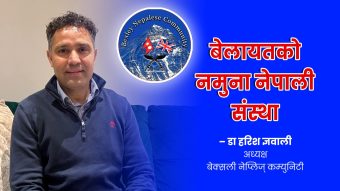
बेलायतको पृथक नेपाली संस्था जसको प्राथमिकता छ पुस्तान्तरण, च्यारिटी र वेलबिइङ (भिडियो)
- १
- २
- ३
- ४
- ५






